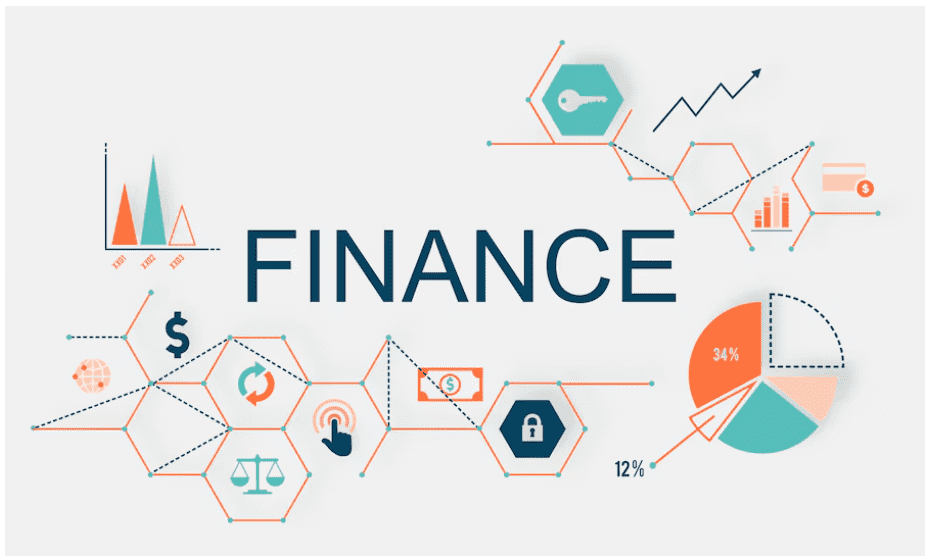
21 Ways to Save Tax From Salary
You must pay special attention to the financial items that can reduce your tax liability if you want to save a sizable portion of your income in India. Sections 80C, 80CCC, and 80CCD in India allow salaried professionals to reduce their tax obligations.
Here At KarSaathi, We Provide You Best Taxation Services:
Tax Consultants in Delhi
ITR Filling Service
Income Tax Consultancy
Accounting services in Southwest Delhi
Likely, you have not planned your taxes adequately if you feel like you have been paying a significant portion of your income in taxes. There are many legitimate strategies to reduce your tax liability. The Income Tax Act of India enables citizens to reduce their tax obligations through deductions. When filing their tax returns, people can claim the deductions.
For Assesses, submitting an Income Tax Return (ITR) is a difficult process. Long documentation procedures, keeping track of numerous documents, and matching requirements compel people to make mistakes frequently.
21 Ways to Save Tax From Salary: As per Income Tax Act 1961
In India, the Income Tax Act of 1961 provides various avenues for salaried individuals to reduce their tax liability. By understanding and leveraging these provisions, you can significantly increase your take-home pay. This comprehensive guide explores 21 strategies to help you save tax from your salary, all in accordance with the Income Tax Act, 1961.
1. Section 80C Investments (Up to ₹1.5 Lakh)
Section 80C is the most popular tax-saving provision, allowing deductions up to ₹1.5 lakh for investments in:
- Public Provident Fund (PPF)
- Employees' Provident Fund (EPF)
- Equity-Linked Savings Scheme (ELSS)
- National Savings Certificate (NSC)
- 5-year Tax-Saving Fixed Deposits
- Life Insurance Premiums
- Sukanya Samriddhi Account
2. National Pension System (NPS) - Section 80CCD(1B)
Contribute up to ₹50,000 to NPS and claim an additional deduction over and above the ₹1.5 lakh limit under Section 80C.
3. House Rent Allowance (HRA) - Section 10(13A)
If you're living in a rented accommodation, you can claim HRA exemption under Section 10(13A), subject to certain conditions and limits.
4. Leave Travel Allowance (LTA) - Section 10(5)
Claim tax exemption on travel expenses for domestic travel twice in a block of four years under Section 10(5).
5. Standard Deduction
All salaried employees are eligible for a standard deduction of ₹50,000 from their salary income.
6. Home Loan Interest - Section 24(b)
Claim deduction up to ₹2 lakh on interest paid for a self-occupied property. For let-out properties, the entire interest paid is deductible.
7. Education Loan Interest - Section 80E
Claim deduction on the entire interest paid on an education loan, with no upper limit. The principal repayment, however, is not eligible for deduction.
8. Medical Insurance Premium - Section 80D
Deduct up to ₹25,000 for health insurance premiums paid for self, spouse, and children. An additional ₹25,000 is available for parents' health insurance.
9. Donations to Charitable Institutions - Section 80G
Donate to approved charitable institutions and claim deductions under Section 80G. The deduction amount varies based on the nature of the donation.
10. Interest on Savings Account - Section 80TTA
Claim deduction up to ₹10,000 on interest earned from savings bank accounts.
11. Disability Deduction - Section 80U
Individuals with disabilities can claim a deduction of ₹75,000 (for disability of 40% or more) or ₹1,25,000 (for severe disability of 80% or more).
12. Professional Tax - Section 16
Claim deduction for professional tax paid to the state government, usually deducted by the employer.
13. Children's Education Allowance
Claim exemption up to ₹100 per month per child (maximum two children) for children's education allowance provided by the employer.
14. Children's Hostel Expenditure Allowance
Claim exemption up to ₹300 per month per child (maximum two children) for children's hostel expenditure allowance provided by the employer.
15. Transport Allowance for Disabled Employees
Disabled employees can claim exemption up to ₹3,200 per month for transport allowance.
16. Meal Vouchers
Meal vouchers provided by employers are exempt from tax, subject to a limit of ₹50 per meal.
17. Telephone and Internet Expenses Reimbursement
Reimbursements for actual telephone and internet expenses incurred for official purposes are exempt from tax.
18. Books and Periodicals Reimbursement
Reimbursements for books and periodicals purchased for official use are exempt from tax.
19. Professional Pursuit Expenditure - Section 80RR
Artists, writers, musicians, actors, and sportspersons can claim a deduction of 100% of income or ₹3,00,000, whichever is less, earned from their profession outside India and brought to India in convertible foreign exchange.
20. Interest on Electric Vehicle Loan - Section 80EEB
Claim deduction up to ₹1.5 lakh on interest paid on loans taken for purchasing electric vehicles.
21. Additional Deduction for Affordable Housing Loan Interest - Section 80EEA
First-time homebuyers can claim an additional deduction of up to ₹1.5 lakh for interest paid on home loans for affordable housing, subject to certain conditions.
Strategies for Maximizing Tax Savings
- Plan Investments Early: Start your tax-saving investments at the beginning of the financial year to avoid last-minute rush and to earn better returns.
- Diversify Investments: Don't put all your eggs in one basket. Diversify your tax-saving investments across different options under Section 80C and beyond.
- Optimize HRA Claims: If you're living in a rented accommodation, ensure you're claiming HRA correctly by maintaining proper rent receipts and agreements.
- Utilize NPS for Additional Benefits: Consider NPS not just for the additional ₹50,000 deduction but also for long-term retirement planning.
- Review Health Insurance Coverage: Regularly review and update your health insurance coverage to maximize the deduction under Section 80D.
- Plan Home Loan Prepayments: If you have a home loan, plan prepayments strategically to maximize the interest component eligible for deduction.
- Keep Track of Donations: Maintain proper records of all charitable donations to claim deductions under Section 80G effectively.
Conclusion:
The Income Tax Act, 1961 offers numerous opportunities for salaried individuals to reduce their tax liability. By understanding and strategically utilizing these provisions, you can significantly increase your take-home salary and improve your overall financial health.
Remember, tax planning should be an ongoing process throughout the year, not just a last-minute exercise. It's advisable to start early, stay informed about changes in tax laws, and consult with a qualified tax professional to ensure you're making the most of all available tax-saving options.
While these strategies can help you save on taxes, it's crucial to make financial decisions based on your overall financial goals and risk appetite, not solely for tax reasons. Always consider the long-term implications of your choices and how they align with your broader financial plan.
By implementing these 21 tax-saving strategies in accordance with the Income Tax Act, 1961, you can take control of your finances, reduce your tax outgo, and pave the way for a more secure financial future. Start exploring these options today and watch your savings grow!
Ways to Save Tax From Salary in the US:
Saving tax from your salary in the United States involves taking advantage of various deductions, credits, and tax-advantaged accounts. Here are 21 ways to save tax legally in the US:
Contribute to a 401(k) or 403(b): Contribute to your employer-sponsored retirement plan, such as a 401(k) or 403(b), to reduce your taxable income.
Open an Individual Retirement Account (IRA): Contribute to a Traditional IRA to deduct your contributions from your taxable income.
Health Savings Account (HSA): Contribute to an HSA if you have a high-deductible health plan to deduct contributions and use them for qualified medical expenses tax-free.
Flexible Spending Account (FSA): Use an FSA to pay for eligible medical and dependent care expenses with pre-tax dollars.
Childcare Tax Credit: Claim the Child and Dependent Care Credit to offset expenses related to child care.
Earned Income Tax Credit (EITC): If you qualify, this credit can provide substantial tax savings.
Education Credits: Utilize the American Opportunity Credit or Lifetime Learning Credit for eligible education expenses.
Mortgage Interest Deduction: Deduct mortgage interest if you own a home and itemize deductions.
Property Tax Deduction: Deduct property taxes paid on your primary residence.
State and Local Income Tax Deduction: If you itemize deductions, you can deduct state and local income taxes paid.
Home Office Deduction: If you have a home office for work, you may be eligible for a home office deduction.
Charitable Contributions: Deduct donations to eligible charitable organizations.
Investment Losses: Offset capital gains with capital losses from investments.
529 Plans: Contribute to a 529 plan to save for education expenses with tax-free growth.
Roth IRA Contributions: Although not deductible, Roth IRA contributions grow tax-free and can be withdrawn tax-free in retirement.
Tax-Efficient Investments: Invest in tax-efficient funds or stocks to minimize capital gains taxes.
Health Insurance Premiums: Deduct health insurance premiums if you're self-employed.
Energy-Efficient Home Improvements: Claim energy-efficient home improvement credits.
Mileage Deduction: Deduct mileage for work-related travel if not reimbursed by your employer.
Job-Related Expenses: Deduct unreimbursed job-related expenses if they exceed 2% of your adjusted gross income.
Filing Status: Choose your filing status carefully, as it can impact your tax liability.
Frequently Asked Questions on Saving Tax from Salary:
1. What are some common methods to save tax from salary?
- Contributing to Provident Fund (PF)
- Investing in Equity Linked Savings Schemes (ELSS)
- Utilizing tax-saving instruments like Public Provident Fund (PPF), National Pension Scheme (NPS), and Tax-saving Fixed Deposits (FDs)
- Availing deductions under Section 80C of the Income Tax Act, 1961
2. How does contributing to Provident Fund (PF) help in saving tax from salary?
- Contributions made towards PF are eligible for tax deduction under Section 80C of the Income Tax Act, up to a specified limit.
- The contribution limit for PF is up to 12% of the basic salary plus dearness allowance.
- The interest earned on PF contributions is also tax-exempt.
3. What are Equity Linked Savings Schemes (ELSS) and how do they aid in tax savings?
- ELSS are mutual funds that invest primarily in equity markets and have a lock-in period of three years.
- Investments in ELSS qualify for tax deduction under Section 80C, subject to a maximum limit of ₹1.5 lakhs.
- ELSS offers the potential for higher returns compared to traditional tax-saving instruments.
4. What is the significance of investing in tax-saving instruments like PPF, NPS, and Tax-saving FDs?
- Contributions to instruments like PPF, NPS, and Tax-saving FDs are eligible for tax deduction under Section 80C.
- These instruments offer a fixed return along with tax benefits, making them popular choices for tax planning.
5. How much tax deduction is available under Section 80C of the Income Tax Act?
- Section 80C allows a maximum deduction of ₹1.5 lakhs for investments made in specified tax-saving instruments.
- This includes contributions to PF, PPF, ELSS, NPS, Tax-saving FDs, among others.
6. Are there any other sections under the Income Tax Act that provide additional tax-saving opportunities for salaried individuals?
- Yes, apart from Section 80C, there are other sections like 80D (for health insurance premiums), 80E (for education loan interest), 80TTA (for savings account interest), etc., which provide additional avenues for tax savings.
7. What is the importance of tax planning for salaried individuals?
- Tax planning helps individuals optimize their tax liabilities by utilizing available deductions and exemptions effectively.
- It ensures compliance with tax laws while maximizing savings and investments.
8. Can I avail tax benefits on Home Loan repayments as a salaried individual?
- Yes, repayments towards the principal amount of a Home Loan are eligible for tax deduction under Section 80C, subject to the overall limit of ₹1.5 lakhs.
- Additionally, interest payments on Home Loans are eligible for deduction under Section 24(b) and Section 80EE, subject to certain conditions.
9. How can I maximize my tax savings as a salaried individual?
- Start tax planning early in the financial year to spread out investments and avoid last-minute rush.
- Diversify investments across various tax-saving instruments to optimize returns and risk.
- Keep track of changes in tax laws and utilize new opportunities for tax savings.
10. Is it advisable to seek professional assistance for tax planning?
- Depending on individual financial situations, seeking advice from tax professionals or financial advisors can be beneficial.
- They can provide personalized guidance, help in optimizing tax-saving strategies, and ensure compliance with tax laws.

Author : Uttam Bisht
14 February, 2024 | 11:39 PM
Mr. Uttam Bisht is a partner with the Delhi Branch of the firm. He has more than 8 years of experience and specializes in Statutory Audit. Expertise in Tax audit of various enterprises. Extpertise internal audit of Private enterprises. Audit planning through business understanding, preliminary analytical procedures, determining materiality levels, and preparation of audit program and pre-audit checklist . He is well conversant with the auditing standards issued by ICAI. .
Tags
Recent Blogs

06 February, 2026 | 07:28 AM
Decoding Union Budget 2026

13 May, 2025 | 07:42 AM
Top 5 Tips for Filing ITR 4 Easily

08 May, 2025 | 01:09 AM
Simple Guide to Filing ITR1 Sahaj

30 April, 2025 | 05:51 AM
Mortgage Rates Today

26 April, 2025 | 10:23 PM
How Bank's are scamming you - Fixed vs Reducing Rate

02 March, 2025 | 05:32 AM
15 Benefits of ITR Filing
Popular Blogs

14 February, 2024 | 11:43 PM
Top 15 ITR Filing Documents

21 March, 2024 | 12:29 AM
The Road to Financial Freedom: Leveraging Tax Services for Long-Term Success

27 February, 2024 | 11:20 PM
Why Filing ITR with No Income is Smart

14 February, 2024 | 11:39 PM
21 Ways to Save Tax From Salary

10 October, 2024 | 10:15 PM
Exploring the 15 Financial Websites You Should Bookmark Right Now

14 February, 2024 | 11:35 PM
